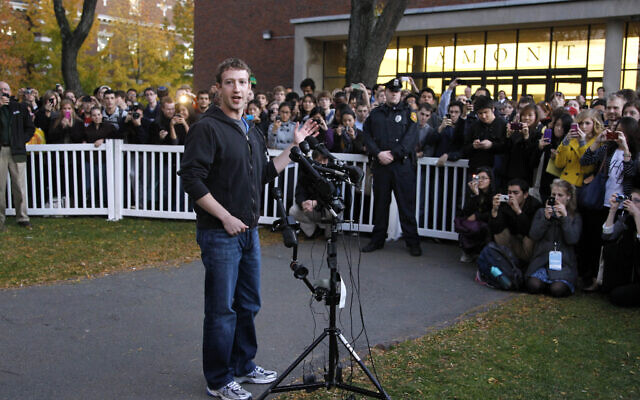New research has found a direct link between Facebook use and a “worsening” in reports of anxiety and depression among college students.
The studypublished by the American Economic Review, discovered that in the first two and a half years of the platform’s existence, college students who had an account on the site were 7 percent more likely to suffer from depression, and 20% more likely to suffer from anxiety.
Facebook’s initial 2004 rollout was staggered, with Harvard students gaining access first, followed by Columbia, Stanford and Yale universities. Researchers utilized medical data from these campuses, comparing their mental health surveys with mental health surveys from college campuses without access to the platform.
While there have been hundreds of studies showing a correlation between social media use and a decline in mental health, researchers say that their unique methodology has allowed them to confirm the link.
The study, produced in part by Ro’ee Levy of Tel Aviv University, suggested that “unfavorable social comparisons” were likely to blame for the increase in anxiety and depression among young people.
“Today, as we know, all of us recognize social media platforms very well. They create jealousy, and users find it difficult to understand that what they see online does not necessarily reflect reality. How much more so 16-18 years ago, when the phenomenon was completely new,” Levy told Channel 12 news.

Facebook creator Mark Zuckerberg takes questions from members of the media as a crowd looks on on the campus of Harvard University, in Cambridge, Massachusetts, November 7, 2011. (AP Photo/Steven Senne)
“The effects seem to increase with time,” said Alexey Makarin, assistant professor at MIT Sloan, another contributor to the study.
“If, in late fall 2004, a freshman at Harvard had Facebook available to him for one semester and a sophomore for two semesters, it appears as though the effect is stronger with the sophomore, who had greater exposure,” Makarin told MIT Sloan’s website .
Makarin said he initially viewed mental health as “just one more” element of social media use, but after conducting his research, he reflected, “I came to realize how truly bad the situation is, and that stuck with me.”
“Any insights that this paper, or others, can offer into what’s behind this trend will be very valuable to society,” he said.
According to data from the Centers for Disease Controlthe suicide rate among 10- to 24-year-olds was stable from 2000 to 2007, then increased 57% between 2007 and 2017.
Today, Facebook boasts 2.5 billion daily users. More than half the world’s population, 4.3 billion people, maintain at least one social media account.
According to the American Economic Review study, in 2021 the average user spent two and a half hours per day on social media.
